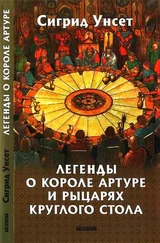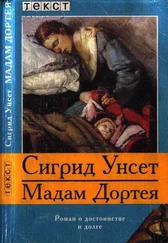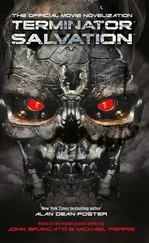But Cole stayed up late that night, skimming more articles (including one called “Mother Nature Is the Worst Terrorist”), then lying in bed, listening to some music he’d downloaded before dinner. Though she wasn’t worried about the flu, his mother was worried enough about Cole’s hearing to nag him constantly about listening so much to his iPod. (His parents had given up their iPods as part of their new discipline but also out of anxiety about hearing loss.) Too bad it was Cole’s favorite thing to do. His parents didn’t believe him, but he actually studied better when he had music blasting in his ears. If he were allowed to take his tests like that, he was sure he’d get better grades. Anyway, he’d heard about surgeons blasting rock and roll in the OR, so obviously it couldn’t hurt your concentration.
He’d had the flu so far twice in his life. He remembered the worst headache he’d ever had, and throwing up and throwing up, and being too tired even to sit up in bed. No denying, the sickest he’d ever been—he could get a little nauseated just remembering it—but nothing like what he’d read about tonight.
His father was always warning him not to trust everything he read online. The Net was a mine of misinformation, he said. And in fact Cole was skeptical about some of these flu stories. People screaming from the pain, people bleeding from their noses and ears and even their eyes, people completely losing their minds—it was like one of those horror movies so over the top that instead of being scared the audience ends up laughing.
He remembered what his mother had said about having time to say good-bye. But here were stories about people being way too sick to know what was happening to them and people dying so fast, some even dropping dead in their tracks as if they’d been shot. But his mother was wrong anyway. It would be better to die in a big explosion, or in a plane or car crash, or falling off a mountain like the principal’s son last year, than to take forever like Cole’s grandparents. His mother knew all about how bad cancer was, but obviously she didn’t know the flu could be a pretty horrific way to die, too. And Cole wasn’t going to tell her. He wasn’t going to bring up the flu again with either of his parents.
But maybe his father was right. Maybe what had happened in 1918 could never happen again.
“U.S. Reveals Detailed Flu Disaster Plans.”
Cole decided to make this the topic for his research report. Plans for manufacturing and distributing vaccines and other medications. Plans to quarantine the sick and to call up extra doctors and nurses and to replace absent workers with retired workers so that businesses wouldn’t have to shut down. Plans to keep public transportation and electricity and telecommunications and other vital services operating and food and water and other necessities from running out. Plans to mobilize troops (for Cole this was the only exciting part) in the event of mass panic or violence.
One day he would ask Pastor Wyatt why, despite all these plans, everything had gone so wrong.
“Son, that is just the thing. That is what people did not—and still do not—get. There is no way you can count on the government, even if it’s a very good government. The government isn’t going to save you, it isn’t going to save anyone. There’s no way you can count on other people in a situation like we had. People afraid of losing their lives—or, Lord knows, even just their toys—they’ll panic. Even fine, decent Christian folk—you can never know for sure what they’ll do next. So I say, love your neighbor, help your fellow man all you can, but don’t ever count on any other human being. Count on God.”
What Cole didn’t know was that most of the plans he read about that night would have been sufficient only for an emergency lasting a few weeks.
His report was really just a cut-and-paste job from the Internet, but he knew it would pass. Ms. Mark never paid much attention to their homework. He didn’t bring up the subject with his parents again, but just before he went off to school Monday morning they brought it up. Was he still worried about an epidemic? And though he said no, they heard yes.
“We’re not going to die, pumpkin,” his mother said. “You really shouldn’t be wasting precious kid time worrying about that.”
“Precious kid time” was something his mother said a lot. She was always complaining that kids today were being forced to grow up way too fast and were being robbed of more and more precious kid time. But to Cole, who could not wait to be sprung from the trap of adolescence, this was totally wack.
He had his iPod with him and was inserting the ear buds when she said, “You want something to worry about? Let me tell you, Dad and I are already paying for the kind of music we listened to growing up. You want articles? I can show you articles, I can show you studies—” The rest of her words were lost. He was out the door, his iPod turned up max.
BY THE TIME THEY MOVED TO INDIANA, the first wave of the flu had come and gone. None of them had caught it. (“See?” said his mother. “We Vinings are made of sturdy stuff.”)
In Chicago there had been dozens of cases of infection but only one real horror story. In a nursing home on the South Side, all but two of the residents had died. But what did you expect? A filthy overcrowded place like that. Old people whose health had been so neglected for so long, they had no resistance to any germs.
Though the first wave had hit much of Illinois and other parts of the Midwest, in southern Indiana, where Little Leap was, there were only a few cases, all mild.
When the second wave hit, everyone hoped it, too, would be mild. A hope that died by the end of the first week.
Later many people would say that if the schools had been closed right away, lives might have been saved. But at the time people argued that you couldn’t just close the schools, because so many parents worked. If they had to stay home to take care of their kids, a lot of them would lose income, maybe even their jobs. Not to mention that businesses were already shorthanded because of all the employees out sick. Closing the schools might just make things worse.
But even before schools were officially closed, many parents had started keeping their kids home. Because teachers were getting sick, too, and there weren’t enough subs, classes had to be combined.
“How stupid can you get?” a teacher who’d been fired for refusing to go in to work told reporters. “Anywhere people are crowded together is bad, but with school kids we’re talking about a perfect storm of contagion.”
From Addy in Berlin came the news that all social gatherings had been banned except for weddings and funerals, where the number of people could not be higher than twelve. (“I wonder if that’s counting the bride and groom,” Cole’s mother said, and his father joked: “How about the corpse?”)
In city after city, all over the world, the number of people appearing in surgical masks kept multiplying. Those still capable of frivolity added illustrations: luscious lips, stuck-out tongues, piano-keyboard smiles, and—most popular—vampire fangs. In Indianapolis, after hundreds of people fell ill over one weekend, no one was permitted to go out without a mask. But—as happened almost everywhere—there weren’t enough masks to go around. Some made do with scarves or other pieces of cloth, or they tried taping gauze or paper to their faces. A lot of people just ignored the rule—and got away with it, the police being out sick in droves.
But a homeless man caught spitting in the street was mobbed and beaten to death.
Читать дальше













